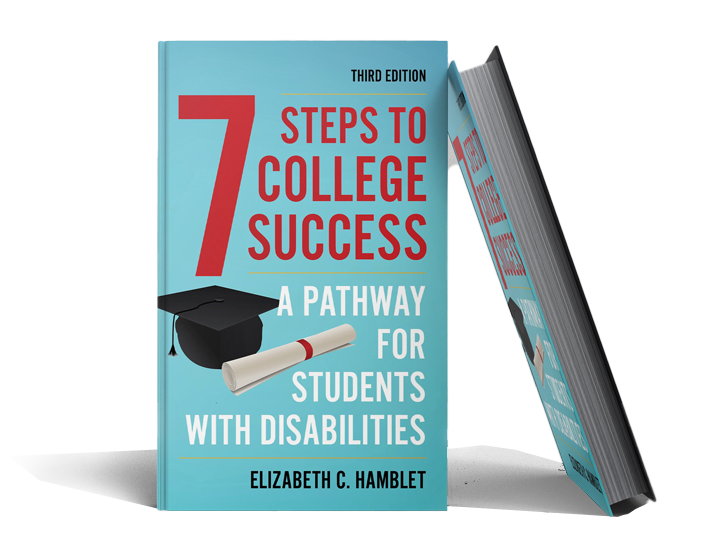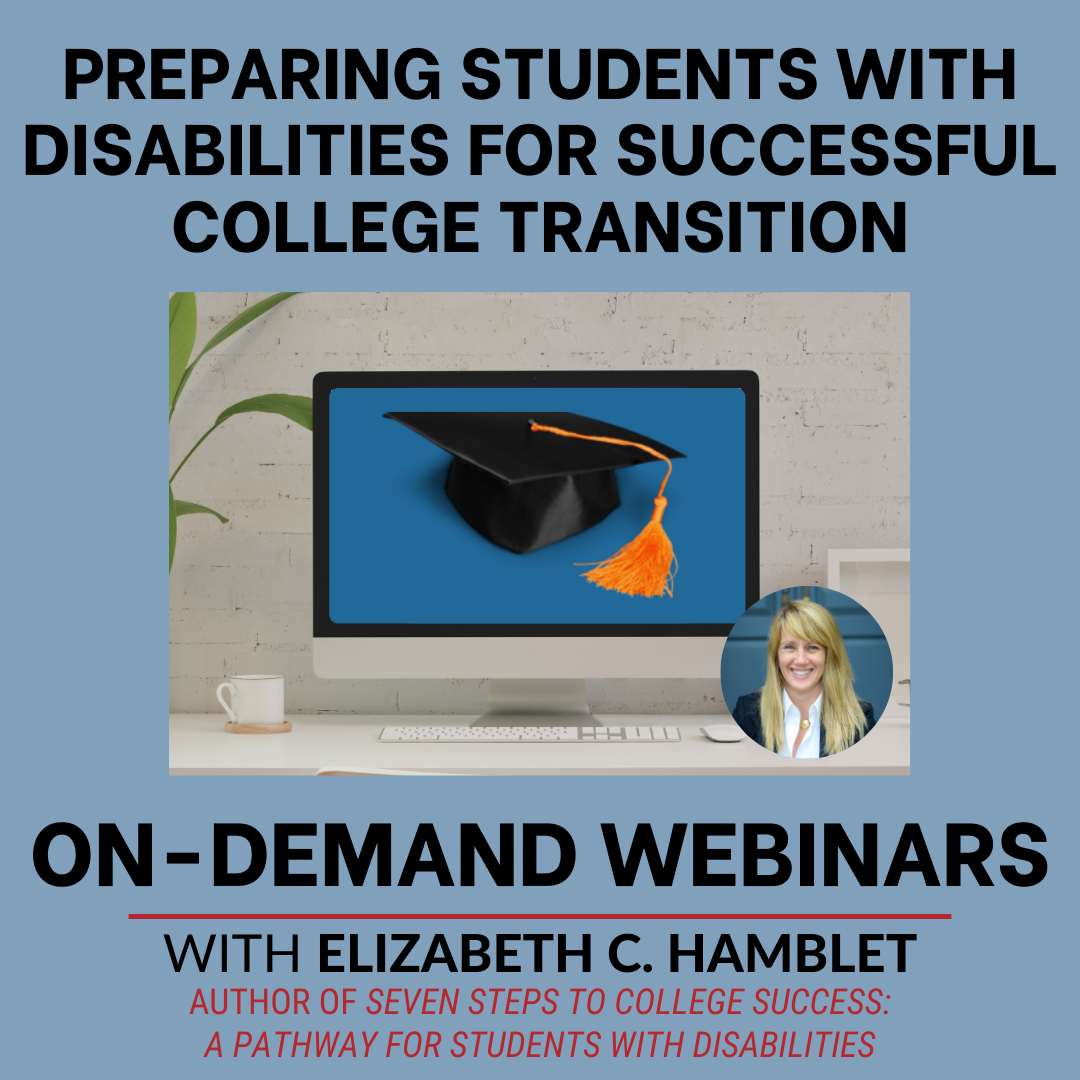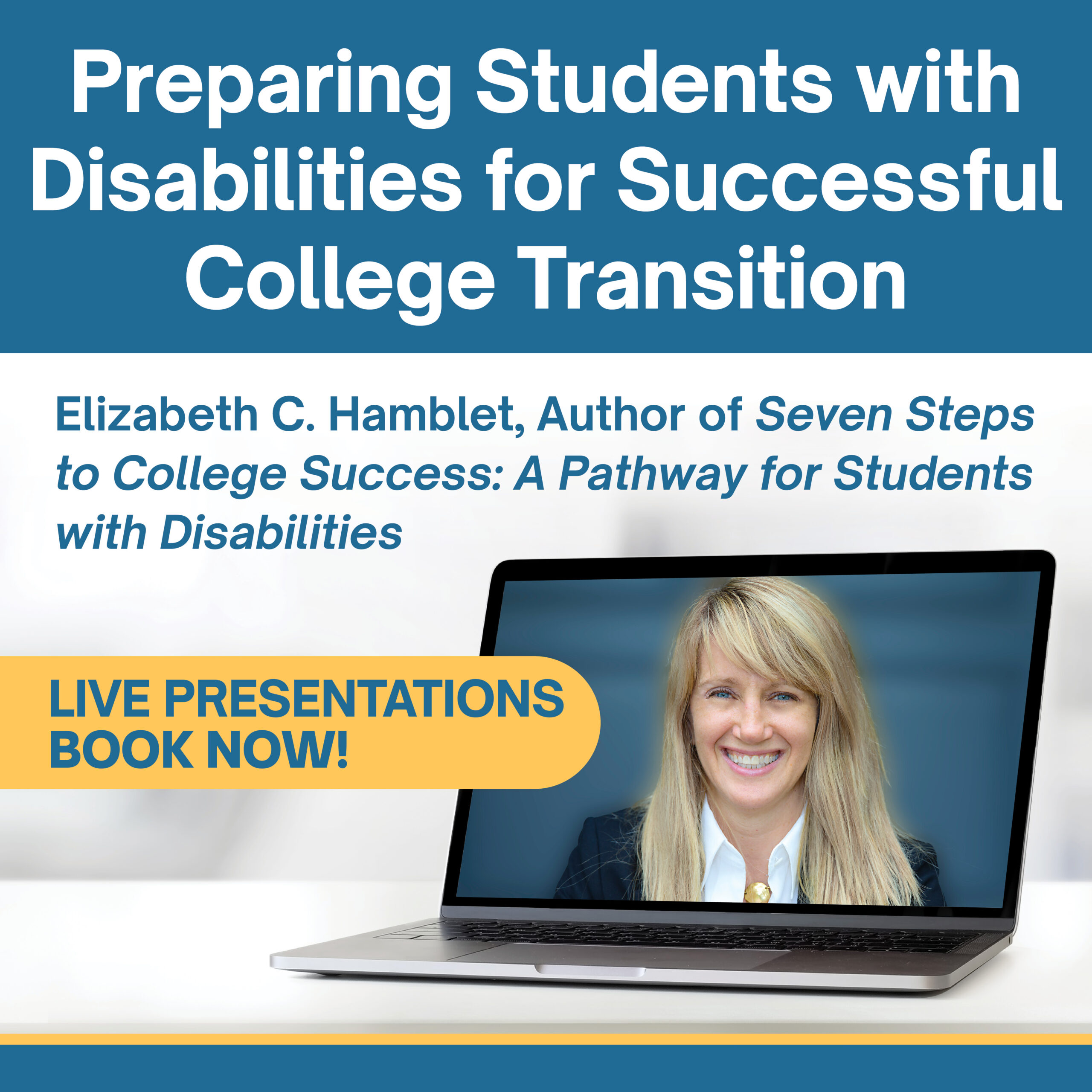Introduction
You may be aware that IEPs and 504 plans are not valid after students graduate from high school.* But students who want to get disability accommodations at college can register for them.
All colleges actually have to provide at least some basic accommodations. It doesn’t matter if they are colleges that are hard to get into, are private, have the most-competitive athletic teams, etc. Unless they don’t take federal funds (such as Pell grants) and are also private and religious, they have to follow the relevant disability laws.
[If you prefer to watch a video about this, I created a video for my Youtube channel.]
Things work differently in college
Unlike in K-12, though, students have to seek out accommodations. They typically can do this as soon as they enroll (meaning they’ve been accepted and put down a deposit and gotten a student ID number).
Colleges may choose to send accepted students information about how to register for them, and they may do things like have a table at orientation events to give out information about accommodations. But they are not responsible for finding students and asking them if they want to register with the disability services (DS) office (or for testing students who have not had testing before).
Also, even if students mention their disability in any way in college applications does not count as registering with the DS office. Admissions is unlikely to send that information to that office. At a college where Admissions does send the information there, DS is unlikely to do anything until students actually complete the registration process.
The process for getting accommodations is not difficult or time consuming, and it can vary from college to college. Students typically need to:
- Complete a form (it may be a paper form or editable PDF, or it may be an online form that they access with their student ID number). This may ask what accommodations they’re requesting and which ones they’ve received in the past. It may ask for some details about how their disability affects them.
- Provide the DS office with documentation of their disability. Here’s how to find the information they’ll need.
- (At some colleges) complete an intake appointment. Students should feel comfortable asking DS what kinds of things they’ll be asked in that meeting so that they can prepare, if they wish. Those who would like to have their parents present in the meeting can request that (students may have to sign a FERPA release to indicate to DS that they approve of this). They and their parents should know that DS staff will want to hear primarily from students so that they can assess their needs, but parents can “fill in the blanks” if students don’t know an answer. (Listen to a DS director discuss what he asks and thinks students should ask him in an intake meeting in this video.)
Typically, students will receive an email from a DS staffer telling them whether they were found eligible for accommodations. If so, that email will say what accommodations were approved (or not).
After approval, some colleges may require students to attend an orientation appointment with their DS contact person (sometimes called a “coordinator”). The coordinator may ask students if they have questions about their accommodations, and give them instructions for the office’s processes. For instance, students may need to complete a form for DS any time they have to an exam.
At some colleges, DS will contact professors about students’ approval for accommodations through the school’s learning management system. At other colleges, students may receive their Letter of Accommodation (LOA) that they have to forward or hand to professors.
It can take anywhere from 2-4 weeks for this process to be completed, from the time students complete the registration form to when they get their approvals.
Students should be aware that:
- there are a few categories of accommodations colleges don’t have to provide (See Step 1 of my book to learn more about this)
- colleges can’t charge students for disability accommodations. For instance, if students are found eligible to take exams in a room with fewer distractions, there won’t be a fee to do this
- colleges can charge for services they’re not required to provide. For instance, they don’t have to provide appointments with a learning disabilities specialist or allow them to have one-on-one tutoring in the academic support center if the policy is one tutor for five students at a time. (Some colleges offer supports that aren’t required through structured, fee-based programs. Learn more in these posts and even more in Step 5 of my book)
- accommodations start from the moment they are approved. Students who wait to register don’t get a “do-over” for any grades they’ve already earned
It is not likely to happen, but if students are not found eligible for any accommodations, they should ask why and see if they can supply more information to support their eligibility. If they weren’t approved for all of the accommodations they requested, they should also ask if providing more information could help. In either case, they can also file a formal appeal of the decision. The DS office should have its own process for this that they can find on the office’s website. (If not, they should ask.) Read what disabilty services directors said about why this might happen and what their process is in Step 7 of my book.
Addressing students’ concerns about registering for accommodations
Research shows that many students who received accommodations in high school don’t request them at college. If you are a parent or professional working with students, see my suggested talking points to persuade them to register, or share this page, which speaks directly to students about why they should register.
At the same time, though, students should know that research shows that accommodations are not the only thing they need to be successful. Accessing other supports on campus is crucial if they are struggling.
Not sure how to find a colleges’ disability services registration process online? I demonstrated how to do this in a video on my Youtube channel and I wrote a post about it here on my blog.




